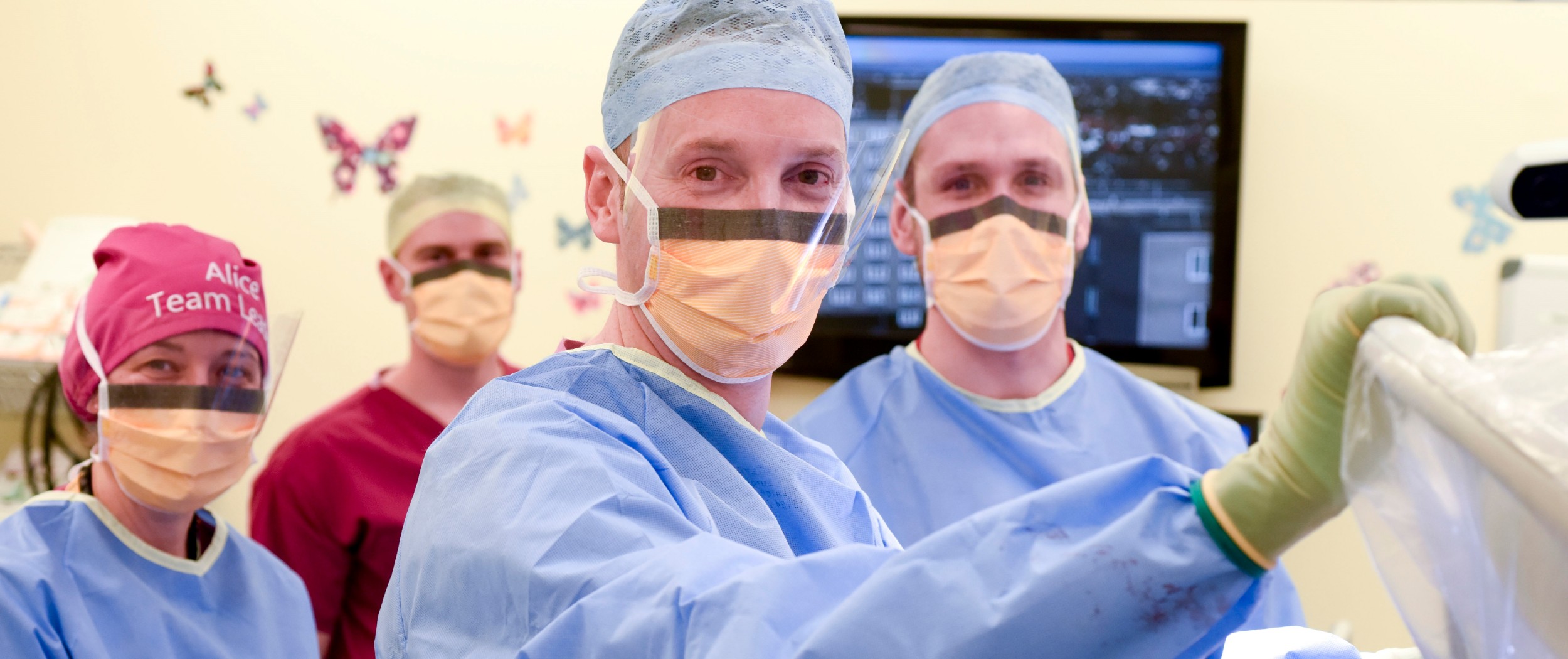Below are some frequently asked questions that we get regarding surgery. If you have a question that isn't answered here please get in touch with your clinical team who will be able to help.
Perioperative medicine is the care of a patient from the moment that surgery is an option, through to recovery after surgery. Benefits include improved personal health, fewer surgical complications and a shorter hospital stay.
Your surgeon will go through the individual risks with you, but general risks of major surgery include:
- Blood clots
- Chest infections
- Kidney problems
- Slowing of gut function
- Confusion
- Wound infections
- Slow wound healing
- Pressure sores
There are also risks associated with the anaesthetic that your anaesthetist will talk to you about on the day of surgery.
We will help you identify what you can do to improve your health before surgery and reduce the risk of complications. We will also support you in making changes, and give you information about what to expect over the next few weeks.
The NHS recommends that all adults do 30 minutes of moderate activity 5 times a week. “Moderate” activity should increase your heart rate, make you breathe faster and feel warmer. Activities could include swimming, cycling, vigorous housework, dancing and gardening.
BMI, or body mass index, is a measure of whether you are a healthy weight for your height. Ensuring that you are aiming for a healthy weight before surgery can improve recovery and decrease the risk of postoperative complications.
Unless you are told otherwise, it is usually safe to drink 14 units a week (this is for both men and women).
A pint of beer is usually 2 ½ - 3 units.
A medium glass of wine is about 2 ½ units. A bottle of wine is usually about 10 units.
A single measure (25ml) of whiskey, brandy, or gin is one unit.
Drinking no alcohol for 3-8 weeks before surgery significantly reduces the incidence of postoperative complications.
Smoke Free Hampshire are a free service, who will provide the help you will require, bespoke to you. This will cost you the price of a usual prescription for Nicotine Replacement Therapy (NRT), eg nicotine patches.
Phone 01264 563039
Text 66777
We want you to continue most of your regular medications until the day of surgery, including on the morning of surgery – you are allowed to take tablets with a small sip of water. However, there are some drugs e.g. blood thinners and diabetic medications, that we will need to stop in advance of your operation. You will be given more information about this at your pre-operative assessment appointment.
Yes. Please bring in 7 days of medications, except for strong pain relief such as morphine, fentanyl or tramadol. Also please ensure you have enough supply of your medicines at home for when you are discharged. Also, if you are able to take, please have some paracetamol at home. This will ensure your discharge is not delayed.
Bring all your essentials!
- Spirometer
- Glasses case
- Denture pot
- Hearing aids/ear plugs
- Washing bag
- Toothbrush (and charger/adaptor if electrical)
- Dressing gown and slippers
- More than one pair of loose fitting clothes or pyjamas
- Surgery School booklet
- Mobility aids
Your doctors will work with you to set you specific targets for eating and drinking after surgery.
You will start with sips of water followed by clear fluids. This is non-milky drinks such as black tea and coffee or water.
The next stage is free fluids, which means you can drink whatever you would like to.
The final stage is to start eating small meals, sometimes along with supplement drinks. We want to get you eating and drinking as normal as soon as possible after surgery as it is thought to aid in the healing process, though do not eat too much too soon. The staff on the ward will guide you.
You may be discharged without any dressings on your wounds, or you may have some simple dressings which the ward staff will arrange ask for you to visit you Practice nurse at your GP Surgery. Sometimes the nurses will arrange for District Nurses to come to your house if the wound requires this.
The ward staff will be able to answer any questions you have about your wounds.
This is different for every Insurance Company. As a general guide you need to be able to carry out an emergency stop with out pain. You must enquire with your insurance company when you are able to drive.
You must ask your doctors this and they will be able to provide a suitable Fit Note.
Most patients can look after themselves when they go home. If you have stairs the physios and nurses will check you are safe to use the stairs.
Make sure you have plenty of food in the cupboards ready for your return. You will be able to boil a kettle, but do not fill the kettle to the top as this will be too heavy.
This will be dependent on your type of surgery. Your surgeon or nurse specialist / practitioner will be able to advise you.
Each speciality and surgeon is different. You will be told at the time of discharge when you will be followed up by your team.
